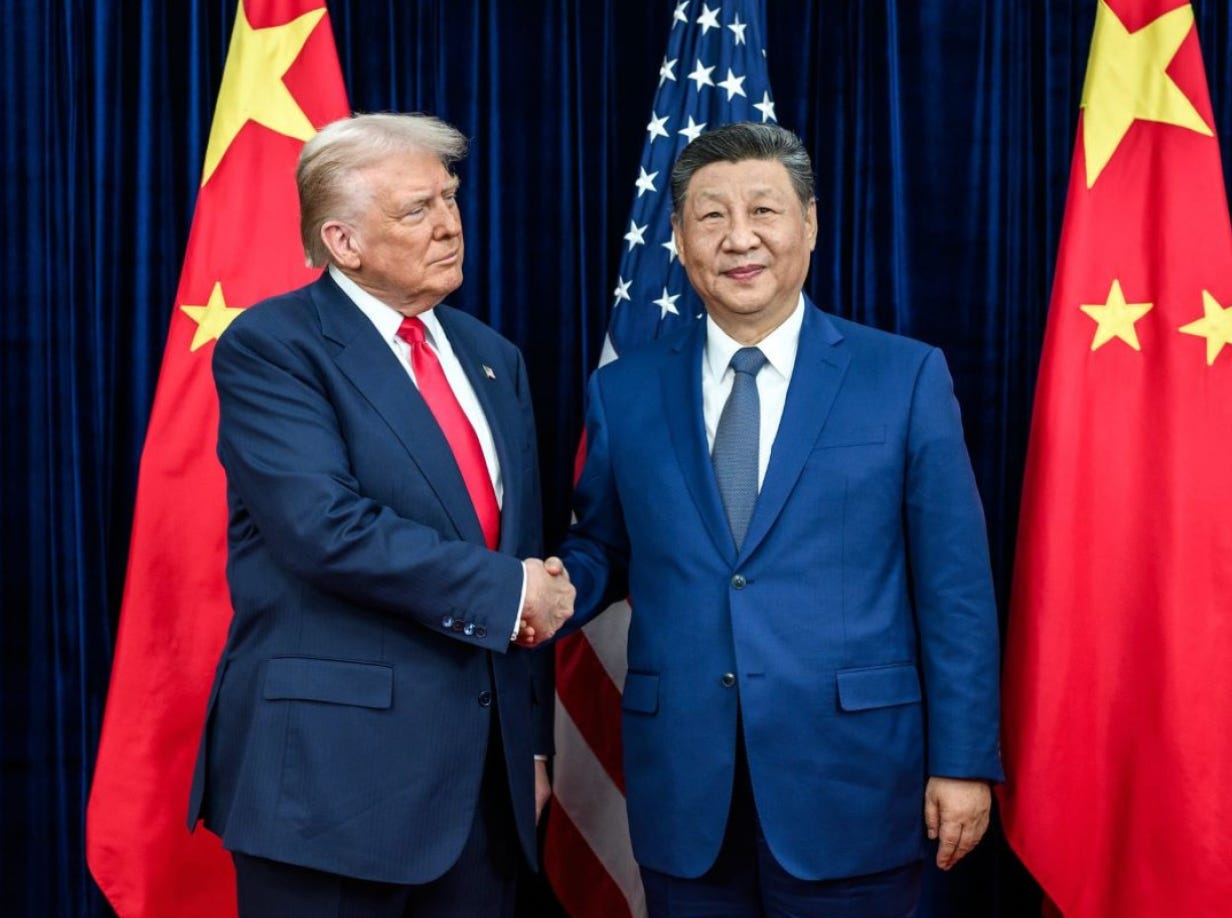“Fear or Freedom”: U.S. Lawmakers Warn CCP’s Digital Authoritarianism Is Going Global
Emerging tools “could push the boundaries of surveillance, allowing CCP to shape people’s thoughts and emotions."
WASHINGTON — In a sharply worded rebuke of the White House’s China policy, a senior Democratic member of the Congressional Committee on Chinese Communist Party influence warns that Beijing’s repression is rapidly expanding worldwide, powered by advanced technologies — and that President Donald Trump has failed to respond with the urgency the threat demands. The committee’s new Minority Report, led by Raja Krishnamoorthi, concludes that the Party’s campaign of coercion and surveillance has evolved from a domestic control system into an exportable framework for authoritarian influence.
Beijing’s one-party rule, enforced through “social stability maintenance” and mass data collection, is now being grafted onto global systems of communication, finance, and infrastructure. “What the CCP is doing will not stay confined within the PRC’s borders,” the report warns. “Its authoritarian practices are spreading outward, shaping a world increasingly hostile to America’s values and strategic interests.”
Within China, the report describes an “all-of-society surveillance regime” linking facial-recognition cameras, online data, and artificial-intelligence scoring systems to measure political loyalty. What alarms the Committee most is how these same tools are being exported. Chinese-made surveillance systems now operate in more than 80 countries, alongside roughly 100 Beijing-linked “overseas police stations” and influence centers operating across 53 nations. Among them was a shut-down site in New York City, where the FBI charged two men in 2023. Authorities in the UK, Spain, Canada, and the Netherlands have also investigated similar networks tied to China’s Ministry of Public Security.
The report’s most striking sections focus on technology — areas where U.S. and allied firms have, knowingly or not, supplied the foundations of the CCP’s digital control state. Semiconductors, AI, quantum computing aren’t just economic battlegrounds, but are foundational to the architecture of global dominance, the Committee argues.
“Quantum will provide the CCP with powerful new instruments of control, while dramatically enhancing facial recognition, predictive policing, and data fusion to identify, predict, and suppress individual freedoms,” the report says.
Citing research from the Australian Strategic Policy Institute, it notes that a CCP-connected neurotechnology firm is developing an emotion-detection and evaluation system capable of responding to human feelings in real time — a breakthrough that could lead to psychological manipulation. “Such innovations,” the report states, “enable PRC authorities to design sophisticated influence operations and achieve unprecedented intrusion into the private lives of individuals.” Taken together, these emerging tools “could push the boundaries of surveillance, allowing the state to shape people’s thoughts and emotions and erode the autonomy and agency that form the basis of democratic citizenship.”
A case study on AI developer DeepSeek reveals how the company “acquires extensive personal data on the Americans who use the chatbot … and funnels the data directly back to China.”
The Minority Report devotes entire sections to Beijing’s growing reach inside America and its allies. It details CCP-linked organizations surveilling diaspora communities, harassing activists, and shaping media narratives. In practice, that means Western journalists face online intimidation, universities host opaque research partnerships, and corporations self-censor to preserve access to Chinese markets.
That warning is reflected in a recent British case emblematic of Beijing’s widening influence over Western academia. In 2024, Sheffield Hallam University suspended a project on forced labor in Chinese supply chains after Chinese state authorities “intimidated, harassed and interrogated” university staff in China. Internal emails showed Professor Laura Murphy, a leading scholar of Uyghur human rights abuses, had repeatedly urged the university to alert the UK government — warnings administrators initially ignored. Complaints against Murphy reportedly originated from Chinese students in her class, underscoring a system already documented by Canadian intelligence, in which visiting students are monitored and directed by Chinese student associations tied to Beijing’s diplomatic and United Front networks.
Keep reading with a 7-day free trial
Subscribe to The Bureau to keep reading this post and get 7 days of free access to the full post archives.



